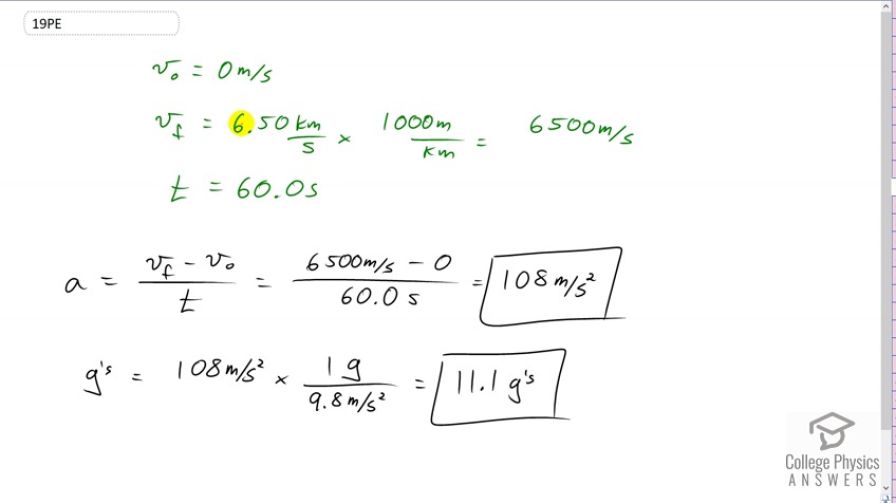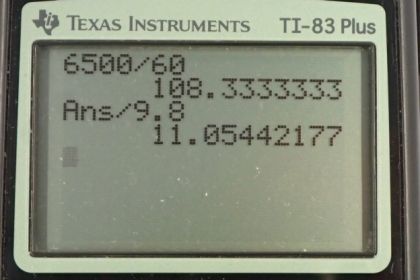Question
Assume that an intercontinental ballistic missile goes from rest to a suborbital speed of 6.50 km/s in 60.0 s (the actual speed and time are classified). What is its average acceleration in and in multiples of ).
Final Answer
or
Solution video
OpenStax College Physics, Chapter 2, Problem 19 (Problems & Exercises)

vote with a rating of
votes with an average rating of
.
Calculator Screenshots
Video Transcript
This is College Physics Answers with Shaun Dychko This intercontinental ballistic missile begins at rest, 0 meters per second, and has a final speed of 6.5 kilometers per second, which we'll convert into meters per second since we're asked to find the acceleration in meters per second squared. So, we multiply it by 1000 meters per kilometer and we end up with 6500 meters per second. And it's always good to take care of your unit conversion issues when you're doing this step at the beginning of a question or writing down your data. And then, the time it takes to reach the speed is 60.0 seconds. So, acceleration is final speed minus initial speed over time. And so, that's 6500 meters per second - final speed minus 0 divided by 60 seconds giving us 108 meters per second squared. The number of gs that represents the number of multiples of Earth's gravity. Acceleration due to gravity is 108 meters per second squared times 1g for every 9.8 meters per second squared. And the meters per second squareds cancel leaving us with 11.1 gs.
